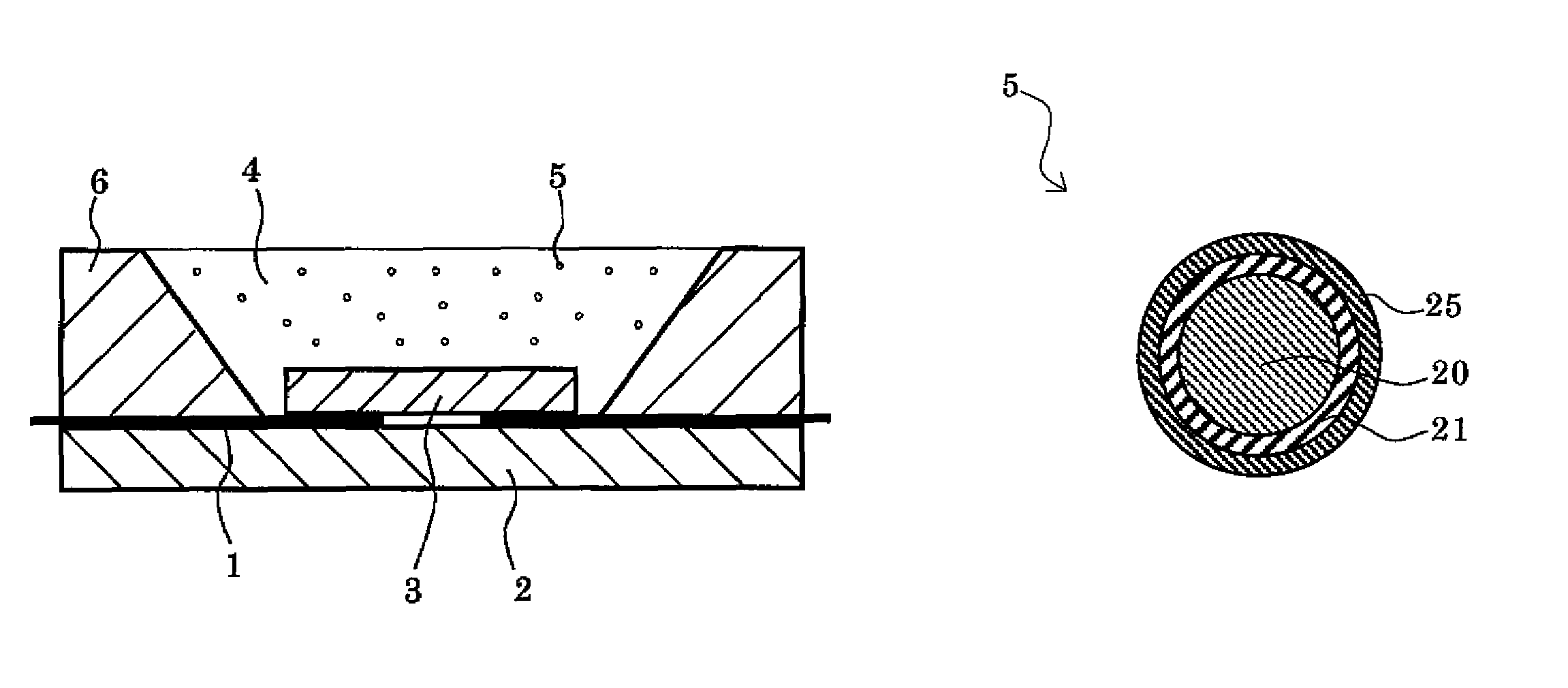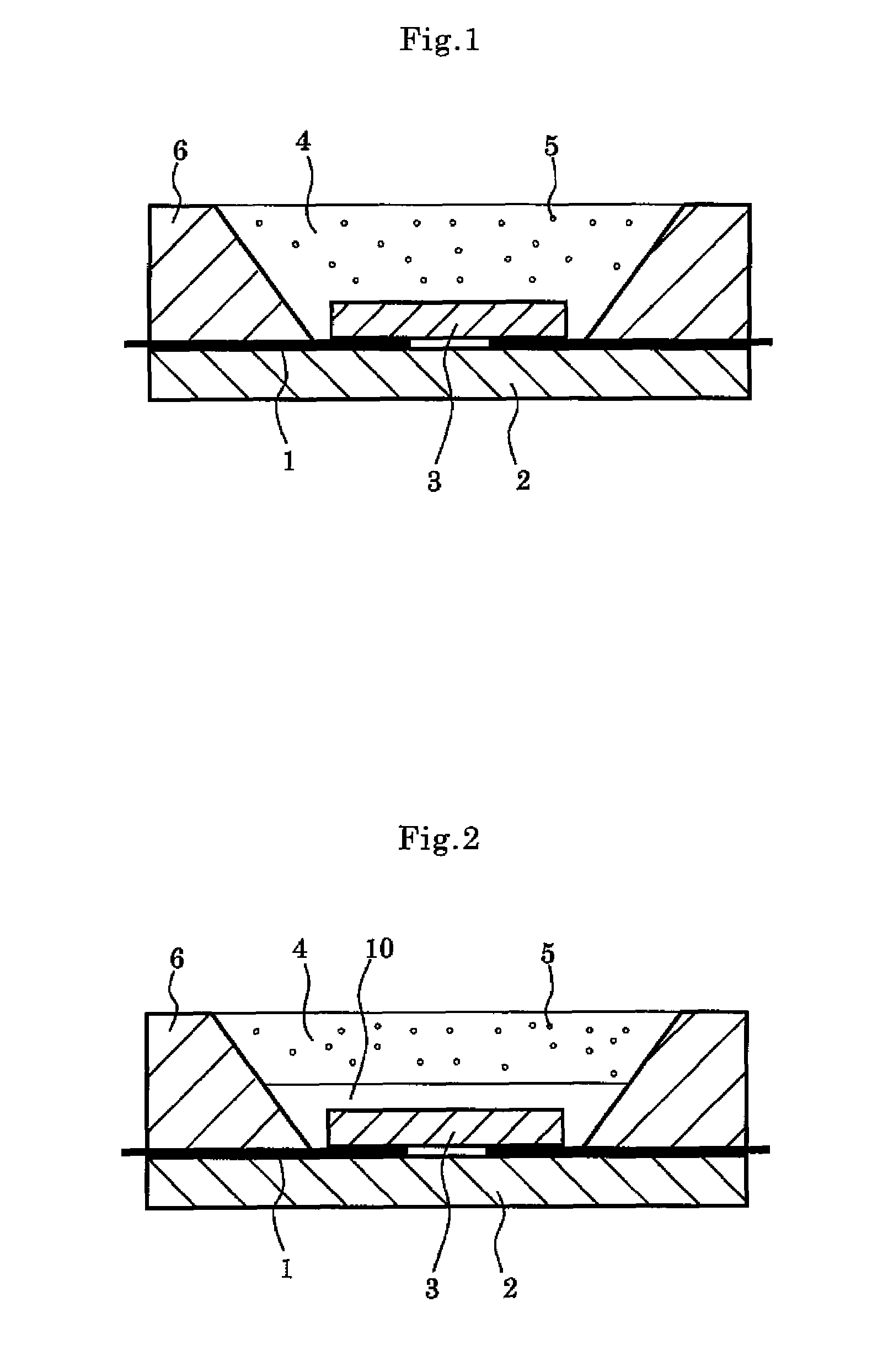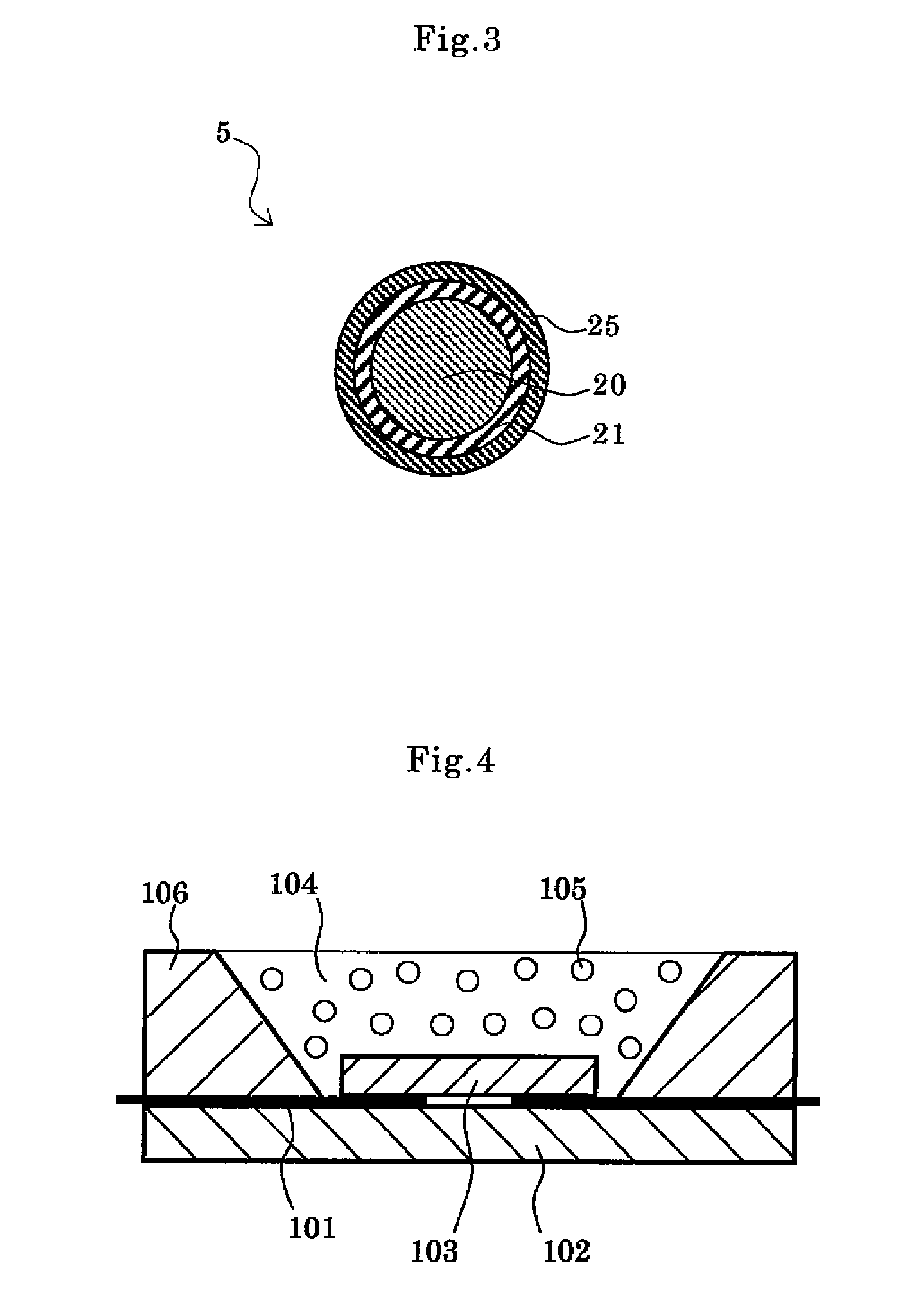Wavelength converter, lighting system, and lighting system assembly
a technology of wavelength converter and light source, which is applied in the direction of luminescent composition, semiconductor devices, chemistry apparatus and processes, etc., can solve the problems of poor color rendering property, inability to improve the luminous efficiency of the white light emitting unit, and less emission of green and blue fluorescent substances, etc., to achieve high conversion efficiency, wide wavelength range, and high fluorescent efficiency
- Summary
- Abstract
- Description
- Claims
- Application Information
AI Technical Summary
Benefits of technology
Problems solved by technology
Method used
Image
Examples
example 1
[0068]Semiconductor ultrafine particles as shown in Table 1 were manufactured with hot soap method in the following manner. First, a predetermined amount of silver chloride (manufactured by KANTO CHEMICAL CO. INC.) and a predetermined amount of indium chloride (manufactured by KANTO CHEMICAL CO. INC.) are separately dissolved in oleyl amine. The respective solutions were then mixed to prepare a solution 1. Next, 7.6 g (0.1 M) of diethyldithio zinc carbamate (manufactured by KANTO CHEMICAL CO. INC.) was dissolved in a mixed solution of oleyl amine and trioctyl phosphine to prepare a solution 2. Adjustments to the solution 1 and the solution 2 were made in an atmosphere of nitrogen. The silver chloride and the indium chloride were added so as to be the ratio of blending (the mole ratio) as shown in Table 1.
[0069]The solution 1 and the solution 2 thus prepared in the above manner were mixed and allowed for reaction with stirring under conditions of the reaction temperature and the reac...
examples 2 to 12
[0080]A core shell structure was formed by coating the surfaces of the above-mentioned semiconductor ultrafine particles of Example 1 with a semiconductor material [zinc sulfide (ZnS)] in the following manner. First, the semiconductor ultrafine particles obtained in the above-mentioned manner were added to a mixed solution of 1.1 g of zinc acetate, 9.9 mL of oleic acid, and 300 mL of octadecene, and stirred while heating at 170 degrees Celsius under argon flow for two hours. To this solution, 12 g of sulfur and 1.5 g of trioctylphosphine (TOP) were added and stirred at 300 degrees Celsius. At the completion of the reaction, this was cooled to room temperature. After 200 g of toluene was added thereto and mixed uniformly, ethanol was added and subjected to acceleration of 1500 G for 10 minutes by the centrifugal so as to precipitate the semiconductor ultrafine particles having the core shell structure, the surfaces of which were coated with zinc sulfide.
[0081]To 1 g of each of the se...
PUM
 Login to View More
Login to View More Abstract
Description
Claims
Application Information
 Login to View More
Login to View More - R&D
- Intellectual Property
- Life Sciences
- Materials
- Tech Scout
- Unparalleled Data Quality
- Higher Quality Content
- 60% Fewer Hallucinations
Browse by: Latest US Patents, China's latest patents, Technical Efficacy Thesaurus, Application Domain, Technology Topic, Popular Technical Reports.
© 2025 PatSnap. All rights reserved.Legal|Privacy policy|Modern Slavery Act Transparency Statement|Sitemap|About US| Contact US: help@patsnap.com



